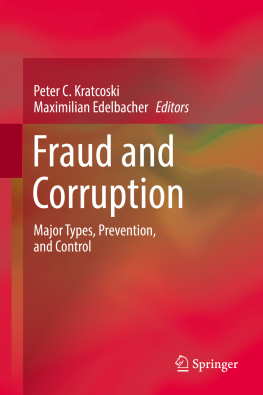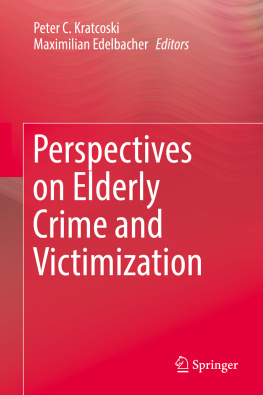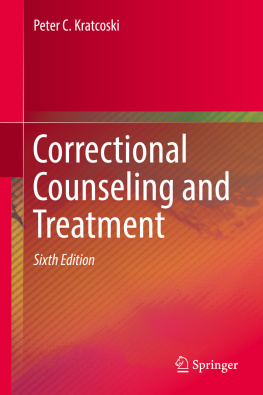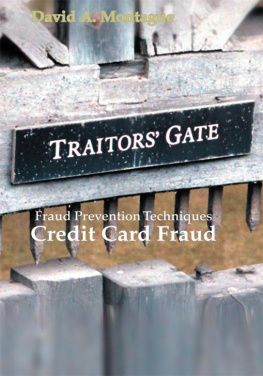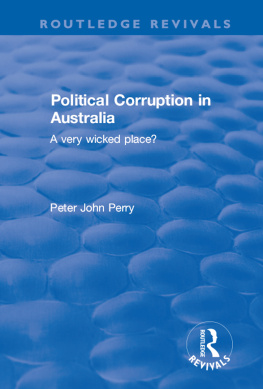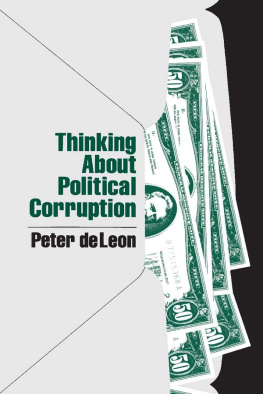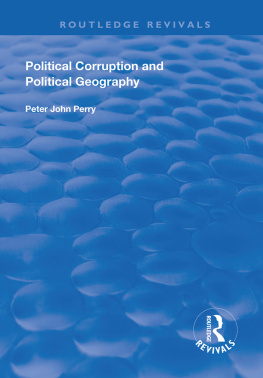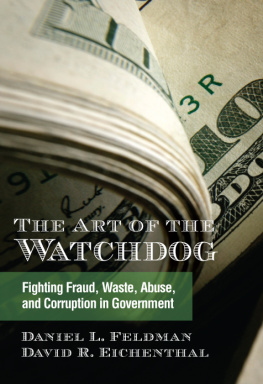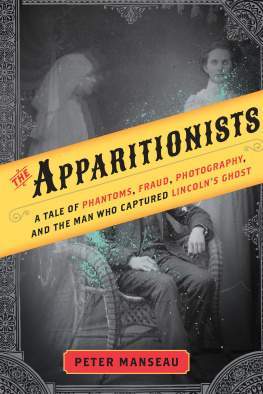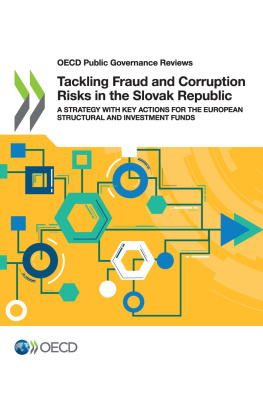Peter C. Kratcoski - Fraud and Corruption
Here you can read online Peter C. Kratcoski - Fraud and Corruption full text of the book (entire story) in english for free. Download pdf and epub, get meaning, cover and reviews about this ebook. year: 0, publisher: Springer International Publishing, genre: Politics. Description of the work, (preface) as well as reviews are available. Best literature library LitArk.com created for fans of good reading and offers a wide selection of genres:
Romance novel
Science fiction
Adventure
Detective
Science
History
Home and family
Prose
Art
Politics
Computer
Non-fiction
Religion
Business
Children
Humor
Choose a favorite category and find really read worthwhile books. Enjoy immersion in the world of imagination, feel the emotions of the characters or learn something new for yourself, make an fascinating discovery.
- Book:Fraud and Corruption
- Author:
- Publisher:Springer International Publishing
- Genre:
- Year:0
- Rating:5 / 5
- Favourites:Add to favourites
- Your mark:
- 100
- 1
- 2
- 3
- 4
- 5
Fraud and Corruption: summary, description and annotation
We offer to read an annotation, description, summary or preface (depends on what the author of the book "Fraud and Corruption" wrote himself). If you haven't found the necessary information about the book — write in the comments, we will try to find it.
Fraud and Corruption — read online for free the complete book (whole text) full work
Below is the text of the book, divided by pages. System saving the place of the last page read, allows you to conveniently read the book "Fraud and Corruption" online for free, without having to search again every time where you left off. Put a bookmark, and you can go to the page where you finished reading at any time.
Font size:
Interval:
Bookmark:
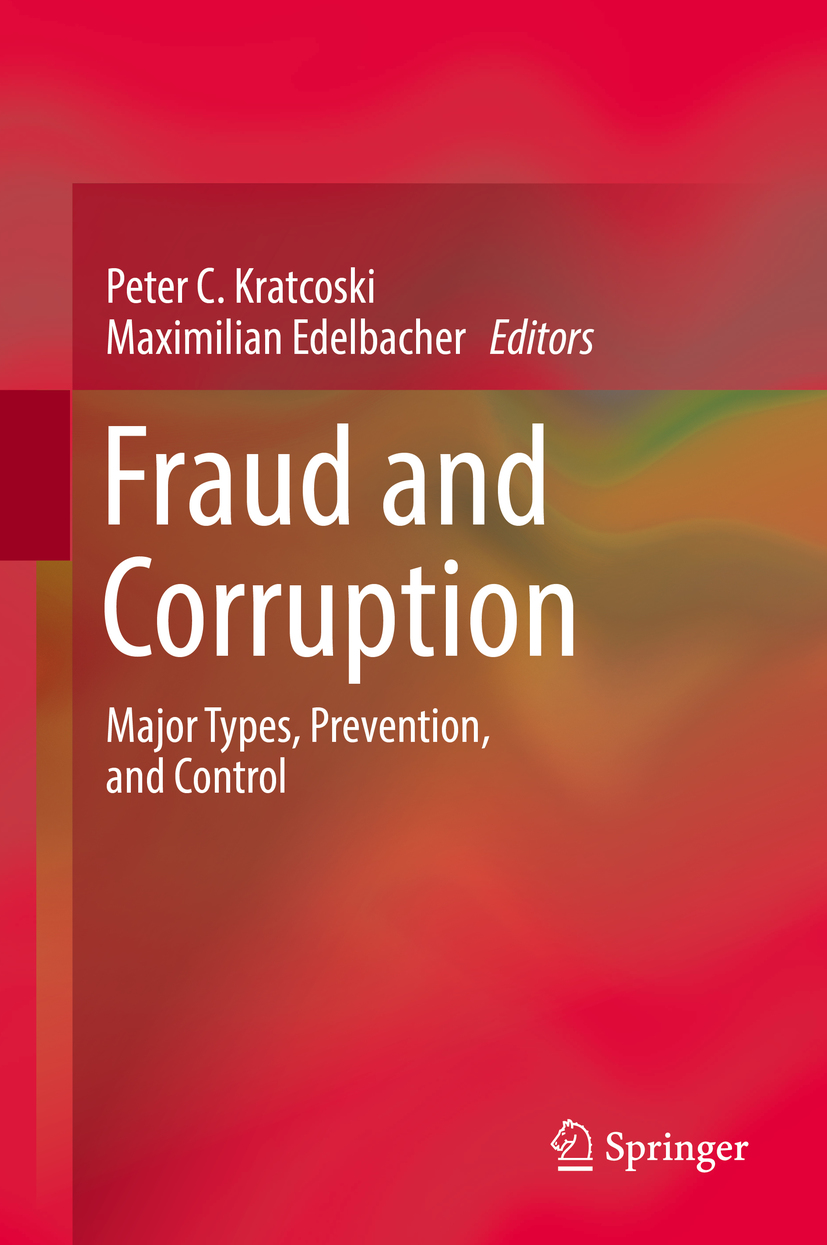

This Springer imprint is published by the registered company Springer Nature Switzerland AG
The registered company address is: Gewerbestrasse 11, 6330 Cham, Switzerland
This book is dedicated to the victims of crime
Over the last few decades, the growth of the world economy has been quite positive, and there have been improvements in the economic well-being of most countries. However, this growth has been accompanied by some negative developments. The growth in economic crime has become a global problem, and there has been a strong increase in activity by international criminal organizations. Financial and tax fraud and corruption have shown strong increases. Organized crime has gained a significant influence on economies throughout the world, resulting in huge rises in expenditures for law enforcement and the judiciary in their efforts to combat this trend. Investigation of this dark side of a globalized economic world is becoming more and more important in the efforts to prevent and control crime.
An increase in corruption has major negative effects on the economy of a country: It leads to higher emigration rates, especially in developing countries. Especially important is the fact that high levels of corruption in government and the business sector lead to highly skilled and well-educated workers leaving developing countries. This results in a shortage of skilled labor and slower economic growth, which in turn create higher unemployment and encourage further emigration. Corruption also shifts public spending from health and education to sectors with less transparency in spending (e.g., the military sector), disadvantaging low-skilled workers and encouraging them to emigrate.
A number of studies show that increased corruption and a larger shadow economy lead to an increase in public debt. Additional research studies indicate that when there is widespread fraud and corruption in the government and those in control of the business sector, the shadow economy increases. This effect of corruption leads to huge increases in public debt, as well as distrust in the competency of the public and private leaders of the countries. Studies show that a larger shadow economy reduces tax revenues and thus increases public debt. The higher government expenditures increase the effects of corruption.
For all of these reasons, reducing corruption should be a primary policy goal of governments. Given the complementary relationship between corruption and the shadow economy, reducing corruption would also lead to a decline in the size of the shadow economy , public debt, and the many types of criminal activities that are associated with corruption and fraud.
Fraud, with its connected criminal activities, leads to dirty money (money laundering), which is earned through various underground activities, such as drug, weapons, and human trafficking. It is impossible to determine how much illicit crime money in all its forms can be detected and recorded, but the most widely quoted figure by the International Monetary Fund (IMF) for the extent of money laundering from criminal proceeds has ranged from 20% to 50% of the global gross domestic product (GDP).
From these few remarks about the dark side of a globalized economic world, it is obvious that we should know much more about corruption and fraud. This is precisely the goal of the authors who have contributed to this book on the prevention and control of fraud and corruption edited by Maximilian Edelbacher and Peter Kratcoski. Only when we have a detailed knowledge about corruption and fraud, including its connected activities, can we develop policy strategies, enact legislation, and implement effective programs to combat the fraud and corruption that exist to some extent in all of the public and private governments and affect the quality of life of the people. This information can lead to good governance rules and institutions which we urgently need to improve our well-being. I highly recommend this book to anyone interested in finding ways to prevent and control corruption and its related crimes.
The editors wish to acknowledge those people who contributed to this book in some way, either by writing, contributing information, or assisting in the production of the book. They are Arije Antinori, John Eterno, Syuzanna Galstyan, Petter Gottschalk, Bricklyn Horne, Alex McKean, Thomas Prenzler, Friedrich Schneider, Branislav Simonovi, Eli Silverman, Michael Theil, and Minoru Yokoyama.
The editors also wish to thank those professionals employed in the criminal justice systems who offered vital information and assistance to the authors. The editors also want to thank Katherine Chabalko, editor of Springer, who saw merit in the book, and other members of Springer, who contributed to the production of the book and worked with the editors throughout the various stages of production process.
Special thanks to Lucille Dunn Kratcoski, who assisted in the editing of the chapters and offered encouragement to her husband, Peter Kratcoski.
Font size:
Interval:
Bookmark:
Similar books «Fraud and Corruption»
Look at similar books to Fraud and Corruption. We have selected literature similar in name and meaning in the hope of providing readers with more options to find new, interesting, not yet read works.
Discussion, reviews of the book Fraud and Corruption and just readers' own opinions. Leave your comments, write what you think about the work, its meaning or the main characters. Specify what exactly you liked and what you didn't like, and why you think so.

